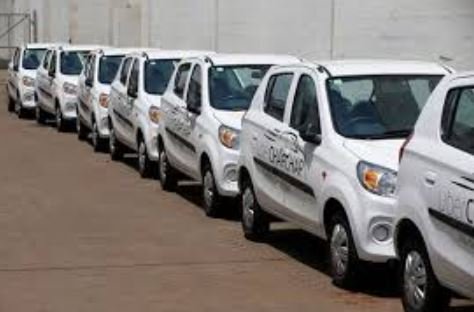Uncertainty hangs ominously over drivers of ride-hailing apps with banks moving to repossess vehicles from those who have defaulted on loan repayments. The drivers, most who are operating on ride-hailing platforms such as Uber, Taxify and Little, have become the latest victims of depressed economic activities. This especially came after the government introduced movement restrictions in March to stop the spread of coronavirus. Stanbic Bank yesterday advertised 72 vehicles that are headed for the auction block including 31 Suzuki Altos that belong to Uber Chap Chap drivers who have defaulted on their payments. The lender entered a partnership in 2018 with Uber and CMC Motors to provide drivers with the Sh835,000 low-cost vehicles at 14 per cent interest payable over three years. Yesterday, Stanbic said the financing partnership with Uber was still active and some drivers had completed payments. However, Covid-19 has disrupted earnings for some with the bank restructuring some facilities. “Due to the impact of Covid-19, our Vehicle and Asset Financing unit has supported the restructures to more than 460 vehicle owners worth approximately Sh1 billion,” said the lender in a statement to The Standard . “We continue to assess the market and discuss with our customers how we can support them. Part of the help includes requests to enter private treaties.” David Muteru, chairman of Digital Taxi Association of Kenya, said ride-hailing drivers are facing auctions for losing incomes owing to stay-at-home orders that have been in place over the last three months. “While other people could stay at home, taxi drivers could not,” he explained. "Saccos and microfinance institutions had given us three months. Once that grace period lapsed, they came for the vehicles,” he said. Muteru said verification documents required by Uber could not be processed from authorities like National Transport Safety Authority (NTSA) and Kenya Police because of the lockdown, leaving many drivers unable to earn. “Drivers had also been getting vehicles on hire purchase from a trader in Mombasa,” explained Mr Muteru. “But this dealer did not offer a grace period and has auctioned a lot of taxis.” A Uber spokesperson said the company had reached out to its drivers to educate them on suitable arrangements for repayment of vehicle financing loans with their lenders in accordance with existing Central Bank of Kenya recommendations. “We have also reached out to preferred vehicle partners to assess their support to drivers in need, through […]
Taxi drivers face auctioneers after virus hits business
